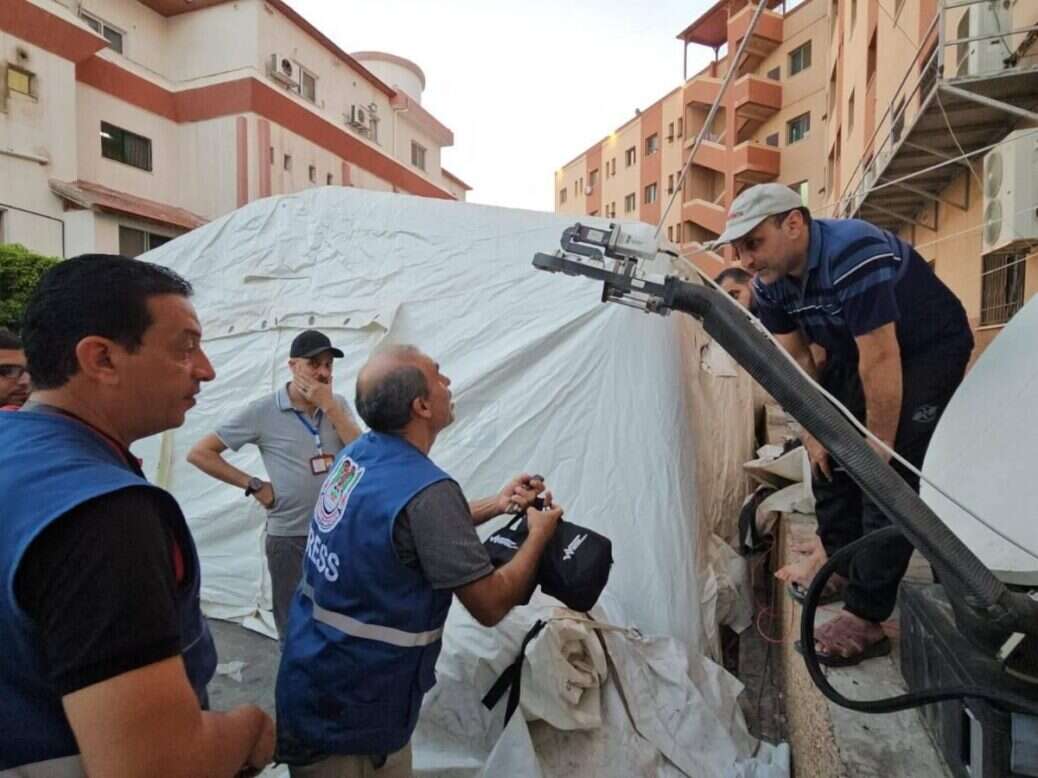
Technology allegedly being used by the Israeli Defence Force (IDF) to target journalists in Gaza is “incredibly sophisticated”, according to the International Federation of Journalists‘ deputy secretary general.
Tim Dawson, a former president of the National Union of Journalists, explained the technology being used to track and attack IDF targets including, he believes, journalists.
A panel discussion in Parliament on Monday saw Dawson discuss growing concerns that the IDF has deliberately targeted Palestinian journalists.
The panel also included Ahmed Alnaouq, Palestinian journalist and founder of We Are Not Numbers, and Al Jazeera correspondent Mohammed Almadhoun. It was chaired by Labour MP John McDonnell.
Dawson detailed how Pegasus, a spyware used by the IDF, is thought to have been used to track the movements of journalists in Gaza.
It can be secretly installed on mobile phones and can allow the installer to read text messages, note phone calls, collect passwords, and most importantly, track GPS locations. This data has allegedly been used to construct a picture of the work and associations of Palestinian journalists.
Pegasus exploits many vulnerabilities in mobile phone systems, triggering infection when victims click on links, through the Photos app, Apple Music app, and iMessage. Infection can occur without any action from the victim.
In 2021, it was revealed that Pegasus had been used to target 180 journalists globally, with Dawson commenting at the time: “Allowing tyrants, despots and the enemies of freedom access to tools such as Pegasus is the 21st century equivalent of smashing printing presses and storming tv stations.”
According to Dawson, it appears that Pegasus has been partnered with an AI-target creation platform known as “The Gospel”.
The IDF website says that “through the rapid and automatic extraction of intelligence”, the Gospel generates targeting recommendations “with the goal of a complete match between the recommendation of the machine and the identification carried out by a person.”
Dawson, supported by Alnaouq and Almadhoun, fears that this use of AI and spyware has been used to specifically attack journalists in Gaza and the West Bank.
The indiscriminate or targeted killing of journalists, whether reckless or deliberate, is considered a war crime.
According to the Committee to Protect Journalists (CPJ), 94 journalists and media workers have been confirmed dead since the conflict began, 89 of whom were Palestinian.
The methodologies for tracking journalist deaths varies, with the Palestinian Journalists Syndicate reporting the death of 120 journalists as of 13 February, equating to 10% of its membership.
The current war in Gaza has seen more journalists killed in the first ten weeks of conflict than in a single country over a whole year since the CPJ began tracking killings in 1992.
Dawson said that about 2.5% of healthcare workers have been killed in Gaza, which, compared to 10% of journalists, was “quite exceptional”.
This week 55 foreign correspondents issued a plea to the Egyptian and Israeli embassies in London for access to Gaza and leaders at more than 30 news organisations signed an open letter expressing solidarity with Palestinian journalists.
Prime Minister Rishi Sunak has also been urged by nine press freedom organisations to “act immediately” to protect the safety of journalists in Gaza. An almost identical letter was previously sent to US President Joe Biden.
Dawson ended the discussion by arguing how important it was for these potential cases of targeting journalists to be heard in international court. He added that “the prima facie evidence is so strong”, he believed it likely that Israel would be seen to have committed war crimes against journalists.
Email pged@pressgazette.co.uk to point out mistakes, provide story tips or send in a letter for publication on our "Letters Page" blog
